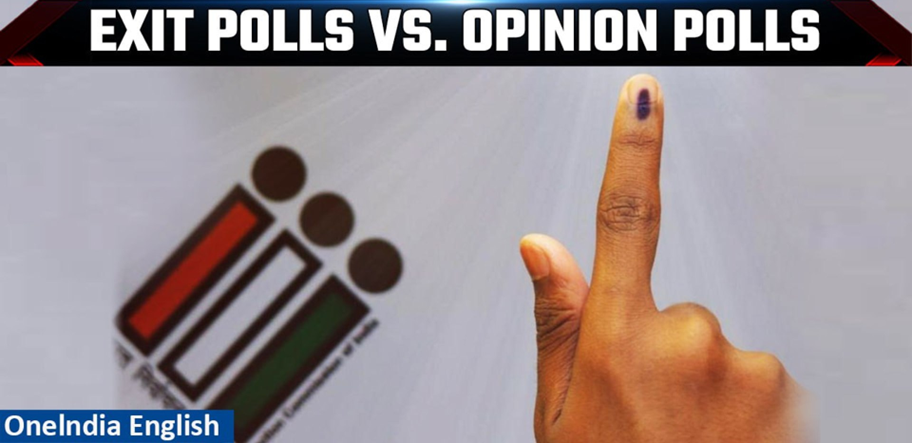Free Courses Sale ends Soon, Get It Now


Free Courses Sale ends Soon, Get It Now



Copyright infringement not intended
Picture Courtesy: www.dailymotion.com
Context: Exit Polls and Opinion Polls are critical parts of understanding voter behaviour and predicting election outcomes.
Details
What are opinion polls?
What is the difference between exit polls and opinion polls?
What are the rules governing exit polls and opinion polls in India?
|
The ECI has issued guidelines for conducting exit polls, which include: ●The sample size and methodology of the exit poll should be disclosed. ●The margin of error and confidence level of the exit poll should be clearly stated. ●The agency conducting the exit poll should maintain complete neutrality and impartiality. ●The agency conducting the exit poll should not have any political affiliation or interest. ●The agency conducting the exit poll should not accept any funding or sponsorship from any political party or candidate. |
What are the limitations of exit polls and opinion polls?
Conclusion
Must Read Articles:
Exit Polls And Opinion Polls: https://www.iasgyan.in/daily-current-affairs/exit-polls-and-opinion-polls
|
PRACTICE QUESTION Q. In a recently conducted election, a media outlet conducted both an exit poll and an opinion poll. What is the key difference between these two types of polls? A) Opinion polls rely on data collected after voters have cast their votes, while exit polls gather information before voters enter polling stations. B) Exit polls are conducted before the election day, while opinion polls are conducted after the election results are announced. C) Opinion polls are conducted by interviewing voters as they leave polling stations, while exit polls gather data by surveying voters beforehand. D) Exit polls and opinion polls are terms used interchangeably, referring to the same method of collecting voter opinions. Answer: A Explanation: The correct answer is A) Opinion polls rely on data collected after voters have cast their votes, while exit polls gather information before voters enter polling stations. Opinion Polls: These polls gather insights and opinions of the electorate on various issues or candidate preferences before the election day. They are conducted through surveys or interviews weeks or even months before the election. The aim is to gauge public sentiment, party support, or candidate popularity leading up to the election. Exit Polls: Conducted on election day, exit polls involve interviewing voters as they leave the polling stations. The goal is to capture the voting patterns, choices, and demographics of voters right after they have cast their votes. Exit polls aim to predict the likely outcome of the election based on the immediate preferences of the voters. |
© 2024 iasgyan. All right reserved